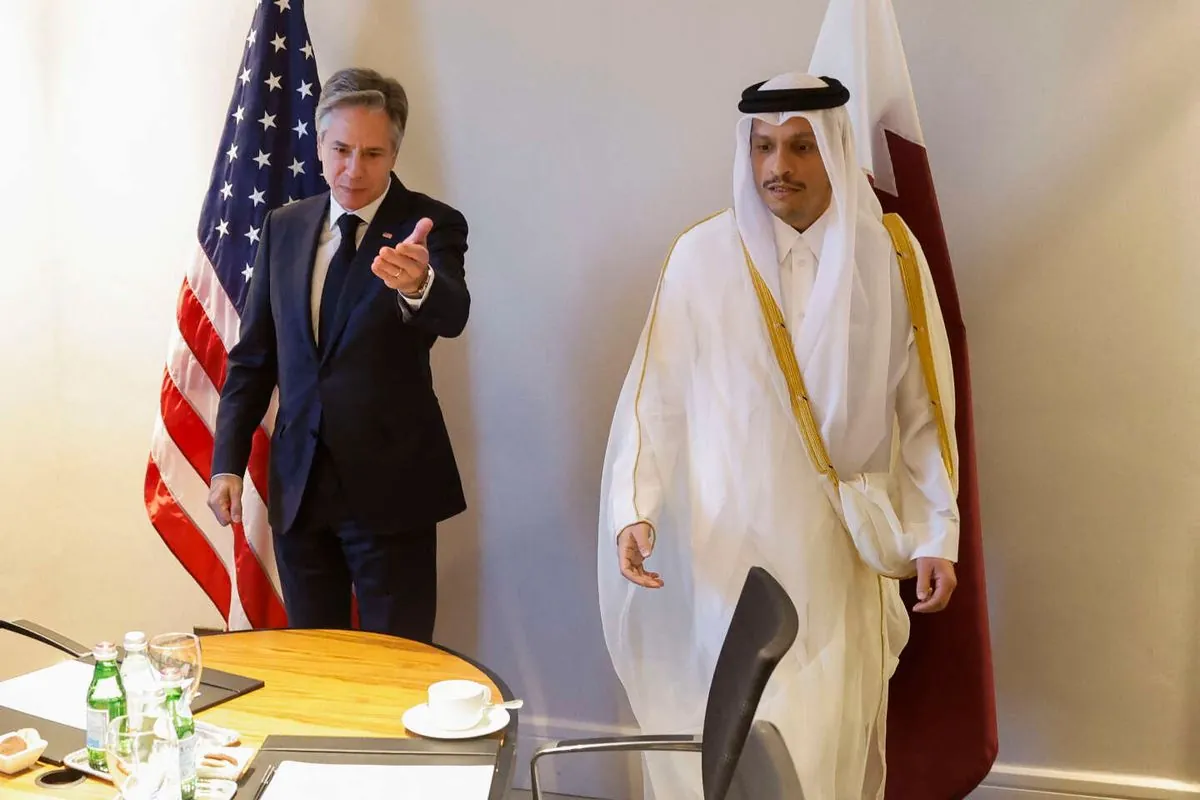In a recent development, Hamas negotiators have reiterated their willingness to implement an immediate ceasefire with Israel in Gaza. This statement comes as the conflict enters its 11th month, with both sides seeking a resolution to the ongoing hostilities.
On Wednesday, September 11, 2024, Hamas representatives, led by senior official Khalil al-Hayya, met with mediators in Doha, Qatar. The meeting included Qatar's Prime Minister Sheikh Mohammed bin Abdulrahman Al Thani and Egypt's intelligence chief Abbas Kamel. These discussions are part of ongoing efforts to broker peace in the region, with Qatar and Egypt playing crucial roles as mediators.
The Palestinian group expressed its readiness to accept a ceasefire based on a previous U.S. proposal without additional conditions. This proposal, put forward by U.S. President Joe Biden in June 2024, outlined a three-phase ceasefire plan in exchange for the release of Israeli hostages.
Despite these efforts, negotiations have yet to yield a definitive agreement. One of the persistent issues is the control of the Philadelphi Corridor, a narrow buffer zone between Gaza and Egypt established as part of the 1979 Israel-Egypt peace treaty. This area has been a point of contention due to its strategic importance for border control and security.
William Burns, the CIA Director and chief U.S. negotiator on Gaza, announced on Saturday, September 7, 2024, that a more detailed ceasefire proposal would be presented in the coming days. The involvement of the CIA in these negotiations underscores the complexity and sensitivity of the situation, as the agency has a long history of engagement in Middle East diplomacy.
The current conflict began on October 7, 2023, when Hamas militants launched an attack on Israel, resulting in 1,200 casualties and the taking of approximately 250 hostages, according to Israeli reports. In response, Israel initiated a military offensive in Gaza, which has led to significant casualties among Palestinians. The Gaza health ministry reports at least 41,084 Palestinian fatalities and 95,029 injuries since the start of the conflict.
Gaza, one of the most densely populated areas globally with a predominantly young population, has been under an Israeli-Egyptian blockade since 2007. This situation has exacerbated the humanitarian crisis in the region, prompting repeated calls from the United Nations for ceasefires.
As negotiations continue, the international community remains hopeful for a peaceful resolution to the conflict. The United States, a key player in Israeli-Palestinian peace negotiations for decades, continues to play a crucial role in facilitating dialogue between the parties involved.
"We are ready to implement an immediate ceasefire based on the previous U.S. proposal, without new conditions from any party."
The ongoing talks and potential new proposals offer a glimmer of hope for ending the protracted conflict and addressing the humanitarian crisis in Gaza. As the situation develops, all eyes remain on the negotiators and mediators working tirelessly to achieve a lasting peace in the region.
